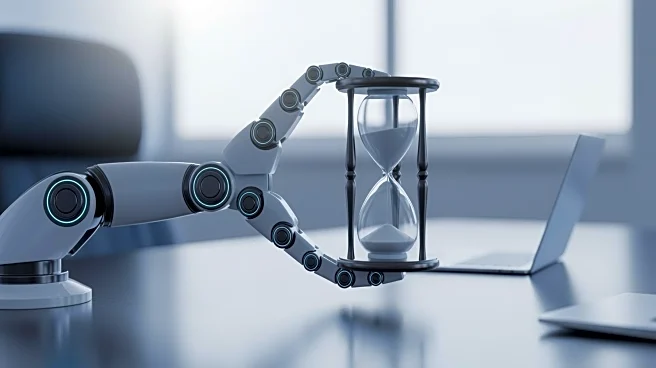What's Happening?
Amazon has announced the layoff of 14,000 employees as part of a strategy to streamline operations and reduce bureaucracy. This move is part of Amazon's broader effort to operate more efficiently, akin
to a startup, by removing layers and reallocating resources to focus on key business areas. Despite reporting significant revenue figures, Amazon is restructuring its workforce in response to the transformative potential of AI technology. The company aims to leverage AI to innovate and improve efficiency, although the actual productivity gains from AI remain uncertain. This layoff is the largest among major tech companies since 2020, reflecting a trend where companies are increasingly citing AI as a factor in workforce reductions.
Why It's Important?
The layoffs at Amazon underscore a growing trend in the tech industry where companies are using AI as a justification for workforce reductions. While AI promises increased efficiency and innovation, the actual impact on productivity and job creation remains ambiguous. According to Gartner, only a fraction of AI initiatives result in significant productivity gains or measurable ROI. This raises concerns about the long-term implications of AI-driven workforce restructuring, including potential job losses and the erosion of employee morale. The move by Amazon, a major player in the tech industry, could influence other companies to adopt similar strategies, potentially leading to widespread job insecurity and shifts in the labor market.
What's Next?
Amazon's decision to lay off a significant portion of its workforce may prompt reactions from various stakeholders, including employees, labor unions, and industry analysts. The company's upcoming earnings call could provide further insights into its strategic direction and the role of AI in its operations. Additionally, other tech companies may follow suit, leading to broader discussions about the ethical and economic implications of AI-driven workforce changes. The impact on employee morale and the potential for further layoffs could also influence public perception and regulatory scrutiny of AI's role in the workplace.
Beyond the Headlines
The broader implications of Amazon's layoffs extend beyond immediate job losses. The move highlights the tension between technological advancement and workforce stability. As companies increasingly rely on AI, there is a risk of undervaluing human capital and eroding organizational culture. The layoffs also raise questions about the sustainability of cost-cutting measures and the potential long-term impact on innovation and employee engagement. As AI continues to evolve, companies will need to balance technological adoption with the cultivation of a skilled and motivated workforce.










